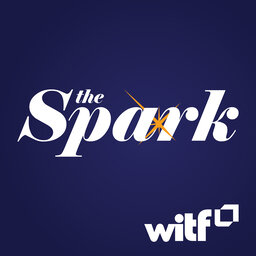Penn State Health takes on food insecurity
Some 1.7 million Pennsylvania are food insecure. Many areas of the state are considered food deserts – meaning grocery stores aren’t close by or there isn’t access to healthy food.
This is an issue we’ve talked about many times over the years on The Spark, because it continues to exist and if anything, the problem has gotten worse between the COVID pandemic and rising prices on food.
Access to healthy food can be an event bigger challenge. With that in mind, Penn State Health is partnering with more than one hundred organizations with a unique approach to providing healthy food to those in need.
With us on The Spark Tuesday were Ashley Visco, Community Health Director at Penn State Health and Zachary Zook, Senior Policy Research Manager at the Central Pennsylvania Food Bank.
Zook indicated there are more people who are food insecure than just a few years ago,"Relative to 2021 and the most recent data that we have available, nationally and in Pennsylvania is in 2022 -- food insecurity increased by more than 25%. So it now affects 12.8% of people nationally. And so that is a major jump from one year to the next. That's also the highest level of food insecurity that we have seen since 2014, since just getting out of the Great Recession. And I'll note that very low food security in particular jumped by 34%. From 3.8% to 5.1% nationally. And so 1 in 20 households in the U.S. experience is very low food security, which is extremely high."
Visco talked about what makes the Penn State Health program unique,"Food insecurity is very nuanced. It's not just individuals who live in food deserts. We often think of food deserts as where the individuals who are food insecure live. But there's food deserts across all of Pennsylvania, regardless of where you live. So we try to have programing that meets the different needs of different types of people. So for instance, we have community gardens that we work closely with. So we partner with with community organizations. And we either help them build or we enhance community gardens that may be already exist as just one avenue. But what we try to do when we build these partnerships, as we don't try to just have, like a food access point, right? It's not like, here's a food access point. There's nothing else that exists there. What we try to do is really layer on services. So one of our best examples is we've partnered with in Lebanon County. We partnered with the Chestnut Street Community Center inside the Chestnut Street Community Center. There's a homeless shelter, there's IU 13, there is a an elementary school directly across the street. We have a community fridge located there, which means anyone can come and get produce as available, but also individuals can have community when they come to the garden, or they can walk down the street, they can grab a cucumber and they can chomp on it and they can walk back down the street. So we really feel like our strength is in our nuance of programing is where we go directly to the community partners and we say what do you need? What is most beneficial in your community? And we work with them to hopefully develop that."
 The Spark
The Spark


